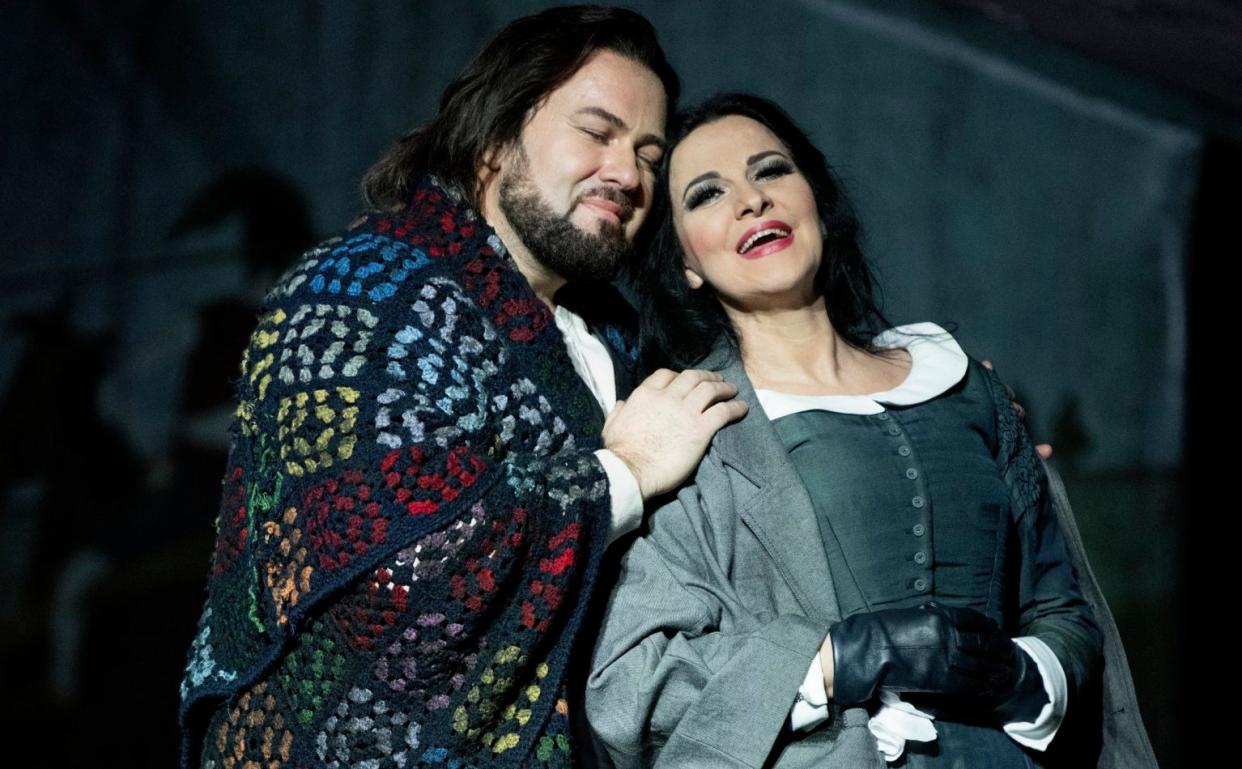La bohème: Angela Gheorghiu’s return to Puccini is magnetic but unfocused

It was over 30 years ago that the Romanian soprano Angela Gheorghiu first sang Puccini’s consumptive heroine Mimi at Covent Garden. Reinforced a couple of years later by her deeply affecting Violetta in La Traviata (in the Richard Eyre production that Georg Solti conducted and the BBC televised live), she created waves of enthusiasm that here was a new Maria Callas. Those were the days when divas could still be divas, and the colourful backdrop of Gheorghiu’s personal life – a passionate relationship and marriage and then divorce with the tenor Roberto Alagna – only served to heighten the mystique.
Now she is back for just a few performances in Covent Garden’s triple-cast series of Bohème revivals in the signature role of Mimi, the ailing seamstress who falls in love with a bohemian poet. Perhaps wisely, she was not presented in the first night cast but in the second night alternative run. The voice is not quite what it was, the shining, dancing glitter of yore replaced by a less focused fluttering, especially above the stave. Occasionally a phrase slips off pitch to agonising effect, but the elements of a touching portrayal are all still there. The vocal focus may have gone, but the personal magnetism remains sufficient to ensure a rapturous standing ovation.
Previously Gheorghiu sang in John Copley’s long-lasting, comfortable production; now she is in Richard Jones’s resolutely unsentimental staging of 2017, which has already showed its staying power, here effectively revived by Simon Ioroio. This is a virtuoso display of visible stagecraft, with Stewart Laing’s trundling sets manhandled by stagehands on the open stage between Acts One and Two and again between Acts Three and Four; Parisian arcades slide into the Café Momus and out again onto the street; the snow drifts down, magically lit by Mimi Jordan Sherin, but we can see that we are in a story.
For four penniless bohemian friends in their rather shiny-clean bare attic, this is a fiction of love that turns tragic. Stefan Pop as the poet – and Mimi’s lover – Rodolfo is ardent, arguably oversung with an edgy passion, but always supporting Gheorghiu’s Mimi. Zoltan Nagy as the musician Schaunard wields his French horn, disrupting the marching band while Michael Mofidian’s Colline the philosopher is effective but restrained. The dominant personality here, though, is the artist Marcello, with an outstanding performance by Andrey Zhilikhovsky who commands the stage. Conductor Evelino Pidò oddly earned one strident boo among the applause: his reading did not really flow, but he supported his sometimes wavering diva impeccably.
In so many unsentimental ways La bohème is a perfect opera: its formal concision, the thematic subtlety and concentrated economy of the music, and its dramatic shape as the attic scene returns at the end for the tragic denouement where Mimi expires. Here the irresistible emotion of those final moments was palpable, but I could not quite feel that Gheorghiu’s demise was any more than a temporary interruption before the curtain calls.
Until Feb 16; roh.org.uk

